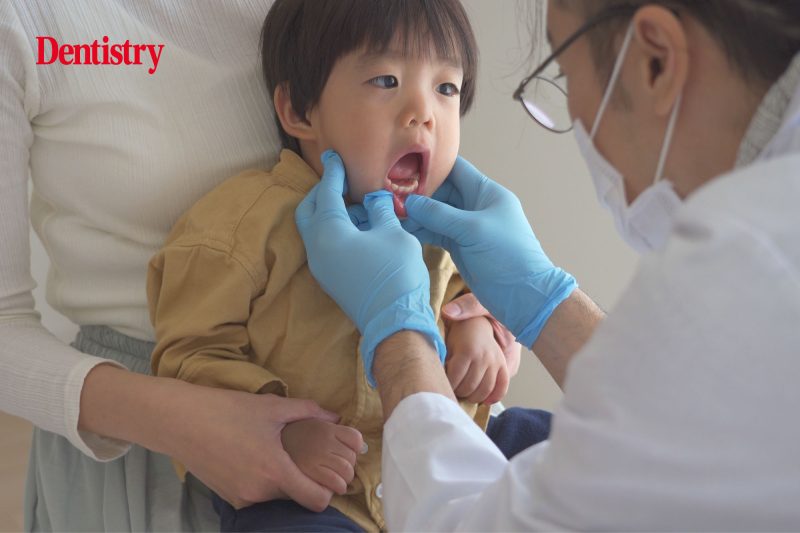Half of under-threes have not seen a dentist, survey says

Only 45% of parents said they had taken or planned to take their child to the dentist before the age of three, says a new survey.
This is despite NHS guidance which suggests that children should see a dentist when their baby teeth first appear. Milk teeth usually begin to emerge at around six months.
One in five of the parents surveyed (21%) said their children brushed less than twice per day or not at all. This had increased from one in seven (14%) in 2023.
The participants welcomed further advice and education around oral healthcare, with 86% believing that good habits should be taught in childhood. Around 37% thought the government should implement oral health education in schools. Half (49%) also supported supervised toothbrushing schemes.
These figures were collected as part of Denplan’s Oral Health Survey, which asked more than 5,000 UK adults about their oral health habits.
‘Deeply saddening’
Catherine Rutland, clinical director at Denplan, said: ‘Unfortunately, many parents think “they’re only baby teeth so there’s no need to go to the dentist”, however baby teeth can stay with us until we’re around 12 years old. Currently tooth decay is still the number one reason children aged 6-10 are admitted to hospital, which is deeply saddening.
‘Many parents are also unaware that brushing should still be supervised by an adult every day until children are over seven years old to be confident they’re doing it correctly.’
Dentaid CEO Andy Evans supported the participants’ call for early oral health education. He said: ‘Every day we see the impact of poor dental health at our charity dental clinics and the effect this has on our patients’ confidence, prospects and wellbeing. We know that instilling knowledge about the importance of dental health from an early age is critically important.’
Dental access
However, Catherine Rutland also stressed the importance of improving dental access throughout the UK. She said: ‘It’s important to offer quality oral health education in primary schools, but our research shows that it cannot be relied on as the only solution if children only benefit four or five years after their first teeth appear.
‘We need a far wider public health education campaign and a long-term solution that gives every child access to a local dentist. To improve access, the government must address the shortage of dentists in the workforce and commit to reforms of the NHS contract.’
Denplan’s Oral Health Survey also found that more than six in 10 (61%) of NHS dental patients would consider paying for private dental care. Almost four in 10 (38%) of respondents said this was because they could not access an NHS dental appointment.
Follow Dentistry.co.uk on Instagram to keep up with all the latest dental news and trends.







